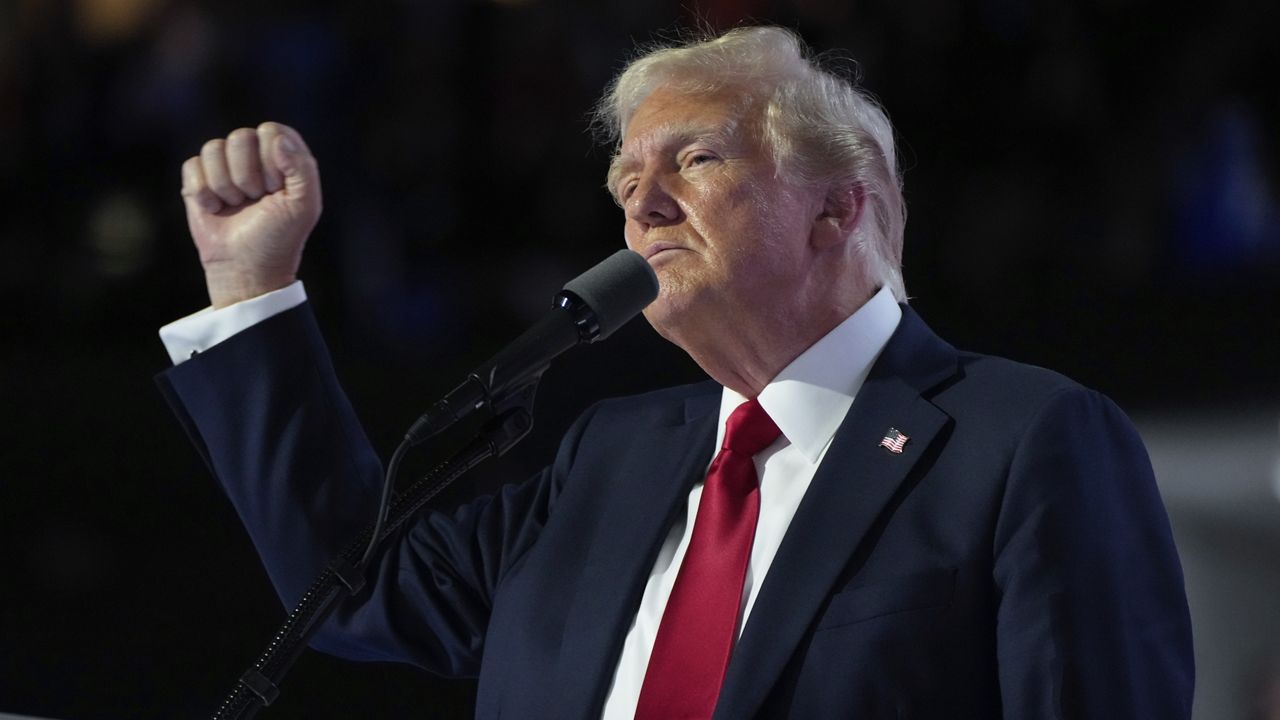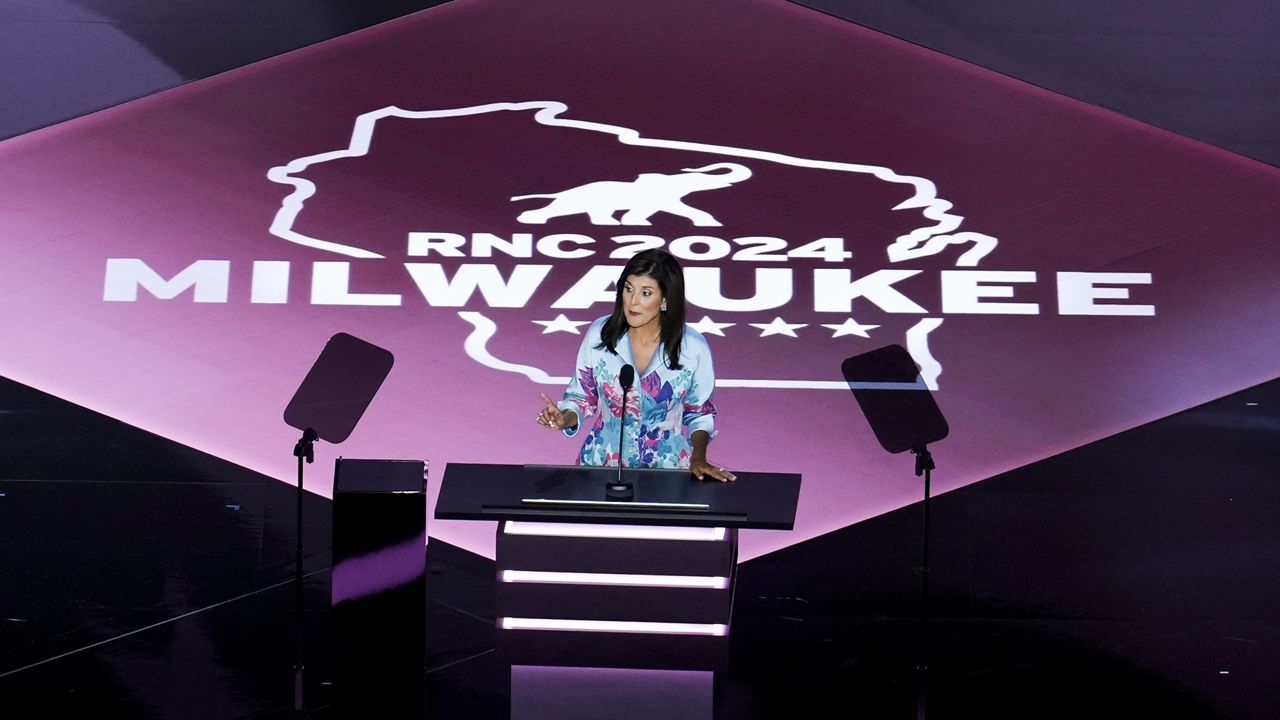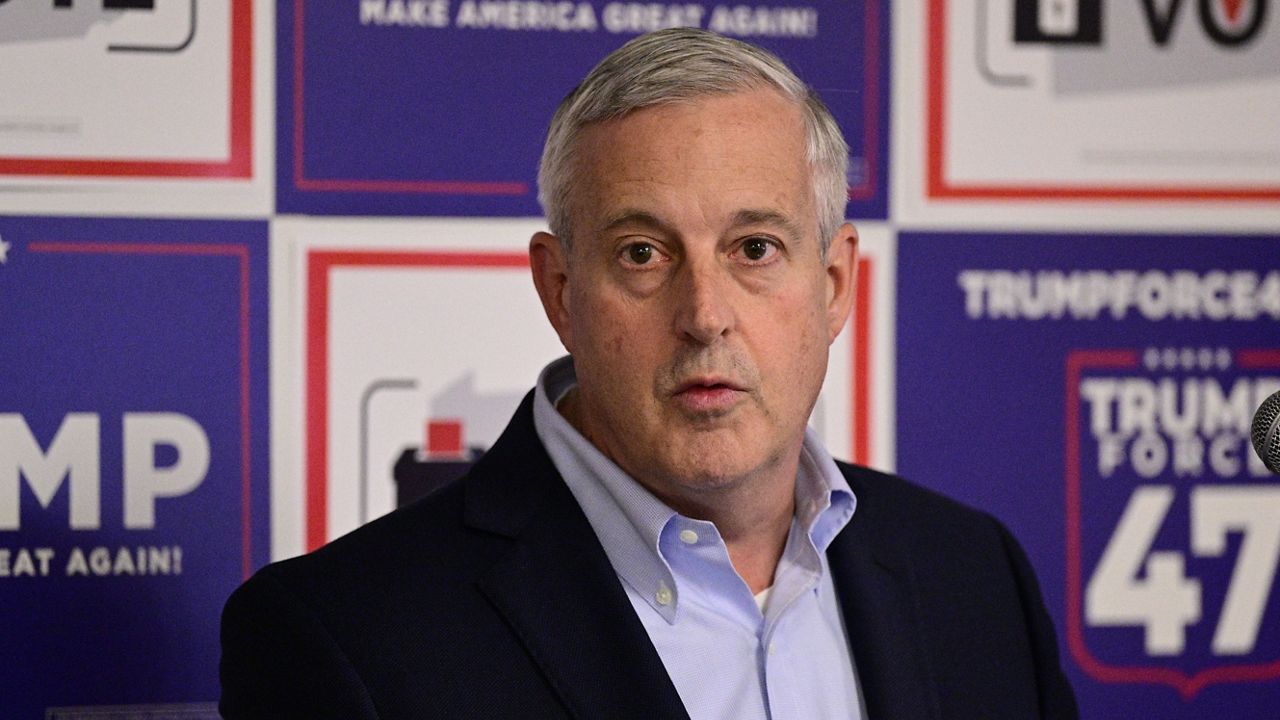The first day of the Republican National Convention was, perhaps, one of the most dizzying days in recent memory — coming on the heels of an already tumultuous weekend after the attack on former President Donald Trump’s Pennsylvania rally.
One shockwave came before the convention even formally started, when U.S. District Judge Aileen Cannon dismissed the classified documents case against Trump, calling the appointment of Justice Department special counsel Jack Smith — who also brought the federal election subversion case against Trump — unlawful. Despite the Justice Department vowing to appeal the decision, which could result in it being overturned, the judge’s order is a massive victory for Trump.
Hours later, Trump named Ohio Sen. JD Vance — a fierce critic-turned-convert and staunch ally — as his running mate, ending months of speculation as to which Republican loyalist would join his ticket as he looks to win back the White House from President Joe Biden.
And both Trump and Vance were formally nominated as the Republican candidates for president and vice president, setting up a showdown with President Joe Biden and Vice President Kamala Harris with 113 days to go until Election Day.
Trump made an appearance toward the end of the night, with rally attendees seeing him for the first time with a bandage on his right ear after it was grazed by a would-be-assassin’s bullet.
Serenaded by Lee Greenwood singing his seminal patriotic hit “God Bless the U.S.A.,” Trump stood with Vance, House Speaker Mike Johnson and other top Republican officials, as well as family members like Donald Trump Jr. and his fiancée Kimberly Guilfoyle and allies like former Fox News host Tucker Carlson.
The crowd showered him with cheers of “USA! USA!” and “fight, fight, fight,” echoing comments he made after the shooting on Saturday.
Despite outward calls for unity from Trump and other officials, including Republican National Committee chair Michael Whatley, in the wake of Saturday’s assassination attempt, that courtesy did not extend to Biden and Vice President Kamala Harris, with numerous speakers using incendiary rhetoric to attack the Democratic administration.
As Republicans gathered in Milwaukee, Biden, meanwhile, sat for a wide-ranging interview with NBC News’ Lester Holt at the White House, which included questions about his “bullseye” comment about Trump from earlier this month, which Republicans criticized in the wake of Trump’s shooting.
Here are some takeaways from the first day of the Republican National Convention:

While not a part of the RNC per se, the ruling in the classified documents case no doubt helped lead to the jubilant mood in Milwaukee on Monday.
The decision by U.S. District Judge Aileen Cannon, who was nominated to the bench by Trump, is a massive victory for the former president, who faced dozens of felony charges accusing him of mishandling classified documents after leaving office and hampering the federal government's efforts to retrieve them. Trump pleaded not guilty last year and has denied any wrongdoing.
"The Framers gave Congress a pivotal role in the appointment of principal and inferior officers," Cannon wrote in her ruling. "That role cannot be usurped by the Executive Branch or diffused elsewhere — whether in this case or in another case, whether in times of heightened national need or not."
"Upon careful study of the foundational challenges raised in the Motion, the Court is convinced that Special Counsel's Smith's prosecution of this action breaches two structural cornerstones of our constitutional scheme--the role of Congress in the appointment of constitutional officers, and the role of Congress in authorizing expenditures by law," she added.
Cannon faced widespread scrutiny for delays in bringing the case against Trump. The case was set to go to trial in May, but it was indefinitely delayed as she reviewed motion after motion put forth by Trump's attorneys.
"Both the Appointments and Appropriations challenges as framed in the Motion raise the following threshold question: is there a statute in the United States Code that authorizes the appointment of Special Counsel Smith to conduct this prosecution?" Cannon wrote. "After careful study of this seminal issue, the answer is no."
"In the end, it seems the Executive’s growing comfort in appointing ‘regulatory’ special counsels in the more recent era has followed an ad hoc pattern with little judicial scrutiny," she added.
In a statement, Peter Carr, a spokesperson for the special counsel, confirmed the Justice Department authorized an appeal, which could result in Cannon's decision being overruled by a higher court.
"The dismissal of the case deviates from the uniform conclusion of all previous courts to have considered the issue that the Attorney General is statutorily authorized to appoint a special counsel," Carr said.
In a post on his Truth Social platform, Trump said the " dismissal of the Lawless Indictment in Florida should be just the first step" in moving to dismiss all the cases against him, which he baselessly called "Witch Hunts."
"The Democrat Justice Department coordinated ALL of these Political Attacks, which are an Election Interference conspiracy against Joe Biden’s Political Opponent, ME," Trump charged. "Let us come together to END all Weaponization of our Justice System, and Make America Great Again!"
Read more about the ruling here

Former President Donald Trump selected Ohio Sen. JD Vance, a Trump critic-turned-convert, to be his running mate in November's election, succeeding former Vice President Mike Pence as Trump's No. 2.
“After lengthy deliberation and thought, and considering the tremendous talents of many others, I have decided that the person best suited to assume the position of Vice President of the United States is Senator J.D. Vance of the Great State of Ohio,” Trump wrote on his Truth Social platform on Monday afternoon. “J.D. has had a very successful business career in Technology and Finance, and now, during the Campaign, will be strongly focused on the people he fought so brilliantly for, the American Workers and Farmers in Pennsylvania, Michigan, Wisconsin, Ohio, Minnesota, and far beyond.”
Trump called Vance about 20 minutes before he made his social media post to let him know his selection, sources confirmed to Spectrum News.
Shortly after Trump announced his pick, Vance was officially selected by delegates at the Republican National Convention to be the party’s nominee for vice president. He was approved by a voice vote without opposition.
Moments earlier, Vance entered the convention floor at Milwaukee’s Fiserv Forum to cheers, hugs and handshakes alongside his wife, Usha Vance, an attorney who he met while both attending Yale Law School.
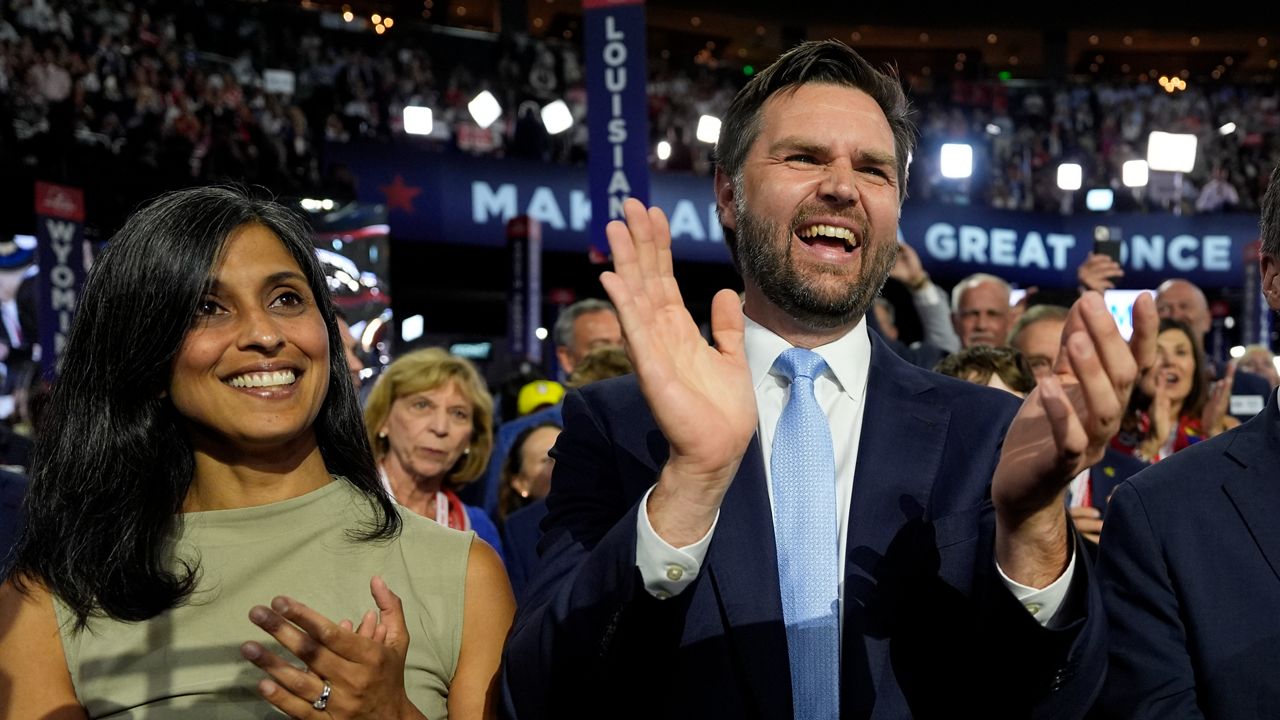
He was nominated by Ohio Lt. Gov. Jon Husted, who described Vance as “a man who loves America and will represent our people with moral courage, strength and honor.”
“JD is a living embodiment of the American Dream,” Husted said. “He came from humble beginnings and even as his life took him to places he might never have imagined, he never forgot where he came from. Ohio values are in his blood.”
In an interview with Fox News’ “Hannity” on Monday night, his first since becoming Trump's running mate, Vance said the call from Trump was "a moment I’ll never forget."
The Biden campaign immediately slammed the pick, labeling Vance as the favored choice of billionaires and corporations and as a Trump loyalist who will “bend over backwards to enable Trump and his extreme MAGA agenda, even if it means breaking the law and no matter the harm to the American people,” as Biden campaign chair Jen O’Malley Dillon said on a press call on Monday afternoon.
“A clone of Trump on the issues,” President Joe Biden said at Maryland’s Joint Base Andrews before boarding Air Force One for a campaign trip to Las Vegas. “I don’t see any difference.”
On the press call, Reproductive Freedom for All president Mini Timmaraju called Vance an “extreme anti-abortion politician” and O’Malley Dillon warned that Vance’s addition to the Republican ticket makes it “more clear than ever that our rights, our freedoms and our democracy are on the line.”

Vance, a Trump critic-turned-convert, has emerged as a leader on the Republican Party’s rightmost reaches and a favorite among some of the more radical figures in Trump’s world. Prior to winning his Senate race in 2022, Vance was a Marine and venture capitalist who wrote a bestselling memoir, “Hillbilly Elegy,” that garnered bipartisan praise for its depiction of his tumultuous upbringing in Middletown, Ohio, and path to Yale University Law School.
“I was a convert in 2019 to the cause of Trump's America First agenda,” Vance said in a speech at the National Conservatism Conference in Washington last week. “I was cognizant of the fact that, because I was a convert, Trump had not yet taken over the Republican Party, even in Washington, D.C., even in 2019 even though he was the president of the United States.”
“There were people who were aggressively pushing back against his influence, who were already planning a return to basically reimplementing the Wall Street Journal editorial page’s preferred positions in 2019. I think that's over now.”
In 2016, Vance notably called Trump an “idiot,” “noxious” and “reprehensible,” labeling himself as “a Never Trump guy” and telling a friend that Trump could be “America’s Hitler” as the then-businessman made his first run for president. Now, as Trump is just days away from receiving the Republican nomination for the first time, he has chosen the man who has become one of his most loyal supporters in Washington as his running mate.
“I always wish his memory was as bad as Joe Biden's, because he would forget about what I said about him in 2016,” Vance said in his speech last week.

Republicans were quick to praise Trump’s pick, with House Speaker Mike Johnson saying in a statement that Vance “possesses a profound understanding of the anxieties of working families and has both the lived experience and the policy expertise to help President Trump deliver a government worthy of the people it is supposed to serve.” New York Rep. Elise Stefanik, a member of House leadership and a vice presidential contender herself, said Trump “made a strong VP choice” and called Vance “a strong America First leader and proven conservative.”
If elected, Vance would be the youngest vice president since Richard Nixon, who was just a few months younger when he took office in 1953 as part of the Eisenhower administration. Vance has three children with his wife, Usha Vance. She previously clerked for Supreme Court Chief Justice John Roberts and for now-Supreme Court Justice Brett Kavanaugh when he served on a lower court.
The Ohio senator, who turns 40 in August, will now be pitted against Vice President Kamala Harris as both junior partners will attempt to make the case to the American people that they are fit to assume the presidency if the 78-year-old Trump or the 81-year-old Biden can no longer serve. Both campaigns have agreed to a CBS News debate later this summer.

While not a surprise in the slightest, Trump received enough delegates on Monday to formally become the Republican presidential nominee.
The delegation from Florida, led by his son, Eric Trump, gave him enough votes to put him over the top.
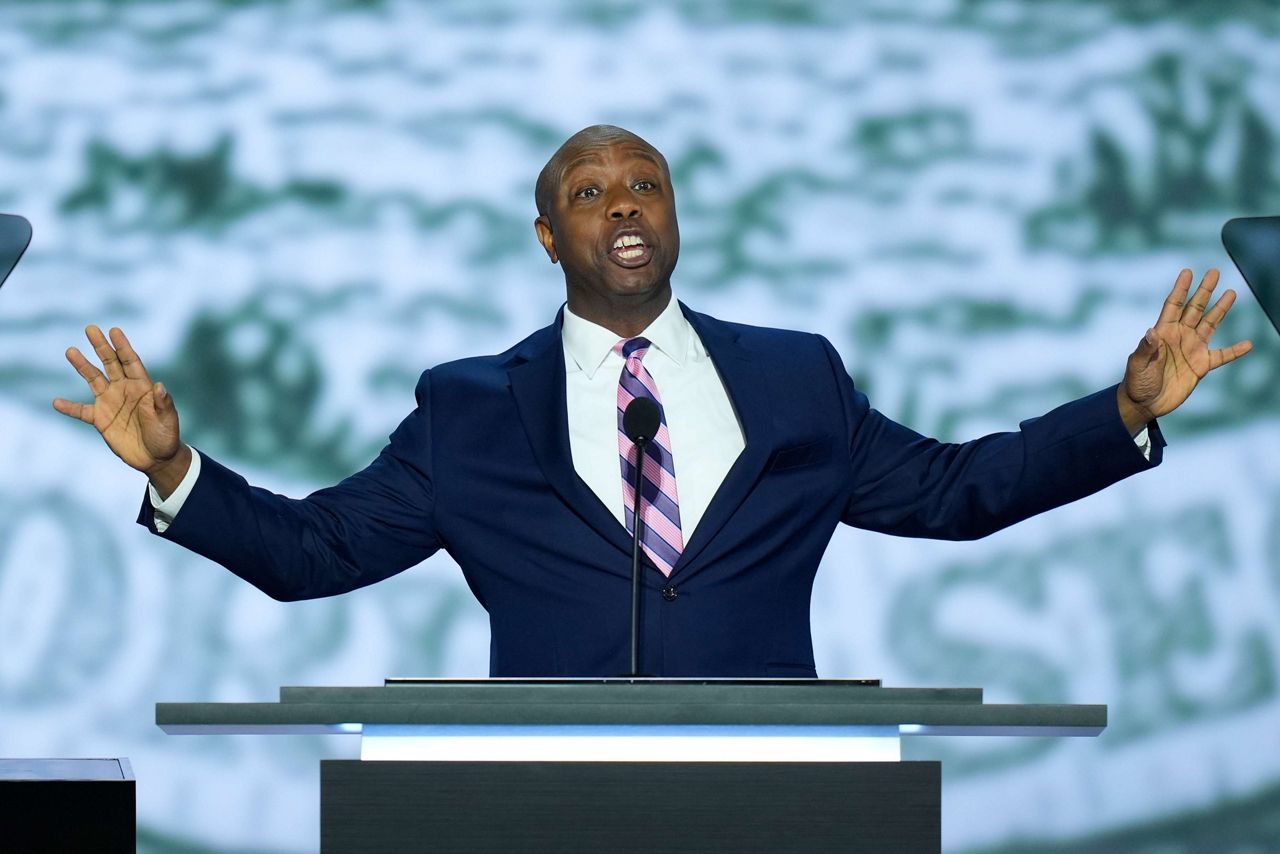
The assassination attempt on Donald Trump was top of mind for many of the speakers at Monday night's event.
Few of the speeches Monday electrified the crowd as much as the one delivered by South Carolina Sen. Tim Scott -- a former 2024 presidential hopeful-turned-staunch Trump backer -- got the crowd on their feet by invoking shooting at Trump's rally on Saturday.
"If you didn't believe in miracles before Saturday, you better be believing right now!" he told the crowd in an exchange heavily laden with his Christian faith. "And our God still saves, he still delivers, and he still sets free. Because on Saturday the devil came to Pennsylvania holding a rifle, but an American lion got back up on his feet and he roared!"
"Oh yeah, he roared!" Scott said to cheers from the crowd of "fight, fight, fight," echoing Trump's comments -- a cheer that RNC attendees used throughout the day.
Georgia Rep. Marjorie Taylor Greene, a far-right firebrand and staunch ally of Trump, opened her speech at the RNC by calling it a "somber moment" for the country in the aftermath of the assassination attempt on Donald Trump.
"Evil came for the man that we love and admire so much," Greene said, adding: "I thank God that his hand was on President Trump.
She also paid tribute to Corey Comperatore, the ex-fire chief and Trump supporter who was killed in the attack, saying he "embodied the spirit of America First" and said Republicans should "honor Corey’s memory by building the country he wanted."

As he kicked off the evening session of the first day of the Republican National Convention in Milwaukee, Republican National Committee Chairman Michael Whatley called for unity in the aftermath of the "horrifying assassination attempt" against former President Donald Trump.
"We are praying for President Trump. We are praying for the injured. We are praying for the family of Corey Comperatore," he said. "We must unite as a party and we must unite as a nation. We must show the same strength and resilience as President Trump and lead this nation to a greater future world."
But that courtesy did not extend to Biden and the Democrats, clearly.
The very next speaker, the next speaker, Wisconsin Sen. Ron Johnson, did not appear to have gotten the memo on the greater "unity" message of the convention, quickly calling Democratic policies a "clear and present danger to America," accusing his opposition party of having a "fringe agenda" that includes "biological males competing against girls and the sexualization and indoctrination of our children."
"Democrats have forgotten American families, they have abandoned the working-class," Johnson charged, adding that under Trump, those forgotten Americans are forgotten no more."
(Speaking to PBS News later Monday, Johnson later blamed the teleprompter loading a previous version of his speech.)
Johnson wasn't the only Republican to invoke anti-trans rhetoric for cheers from the crowd. Greene shifted gears after her comments about Trump's shooting to condemn the "establishment in Washington," which she said has "sold us out."
"They promised unity and delivered division," Greene said. They promised peace and delivered war. They promised normalcy, and they gave us Transgender Visibility Day on Easter Sunday." (President Joe Biden's proclamation marking Transgender Day of Visibility on Easter Sunday was not intentional; the holiday is marked on March 31 every year, and Easter Sunday falls on different days each year, it just happened to fall on the same day in 2024.)
“And let me state this clearly: There are only two genders,” she said to cheers.
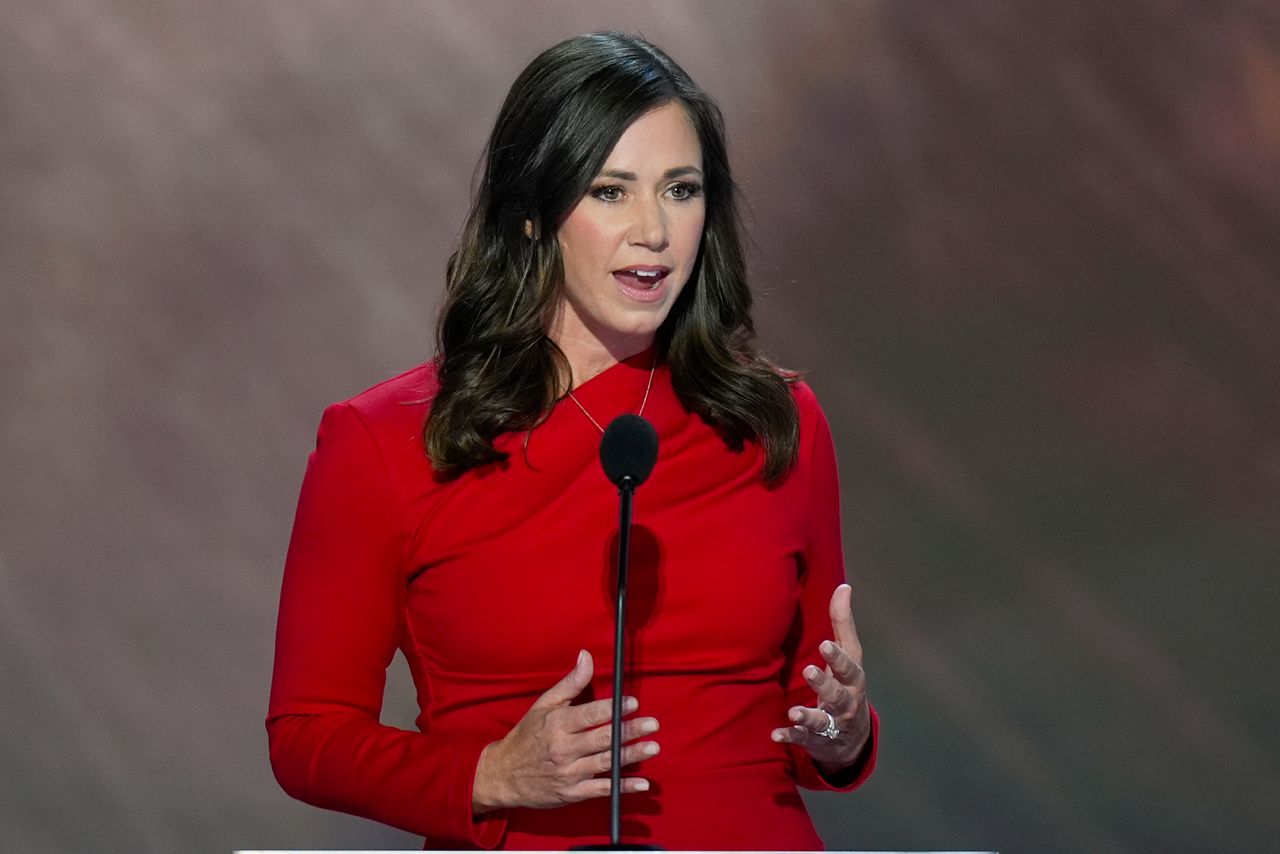
Alabama Sen. Katie Britt, who delivered the Republican rebuttal to President Joe Biden's State of the Union speech earlier this year, charged that the Democratic incumbent is "in decline" and "Donald Trump is the change we need."
"We see how Biden and Harris keep making things worse," she said. "And we know the current president is not capable of turning things around."
"His weakness is costing us. Our opportunity, our prosperity, our security, our safety — each diminished, all in decline," Britt said. "Just like the man in the Oval Office."
Scott said that President Joe Biden is "asleep at the wheel and we're heading over a cliff," blaming him for a number of issues, including "weakness" that "has invited world wars all around our world."
"America is not a racist country," Scott later said to cheers, adding: "But if you are looking for racism today, you'd find it in cities run by Democrats."







